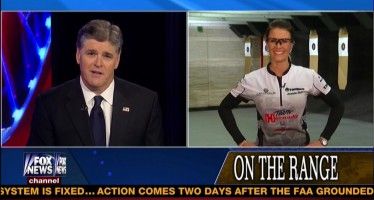Stadium gambit: Chargers coverage downbeat, Raiders more skeptical
 The Chargers and Raiders’ plan to move to Carson and share a privately funded $1.7 billion stadium has hit like a bombshell in the teams’ home bases. It is sinking in that California’s second- and third-largest metropolitan areas seem on track to lose NFL teams to California’s largest metropolitan area.
The Chargers and Raiders’ plan to move to Carson and share a privately funded $1.7 billion stadium has hit like a bombshell in the teams’ home bases. It is sinking in that California’s second- and third-largest metropolitan areas seem on track to lose NFL teams to California’s largest metropolitan area.
The reaction was harsh in San Diego. Sports columnist and veteran Chargers watcher Kevin Acee likened the announcement to the Chargers being “in bed with a silver and black whore,” a reference to the team’s long and at times ugly rivalry with the Raiders. That characterization was soon toned down, but Acee’s bitterness — and San Diego’s mayor’s bitterness — was still plain:
“It’s now abundantly clear,” San Diego Mayor Kevin Faulconer said in a statement Thursday night, “that while we have been working here in San Diego to create a plan for a new stadium, the Chargers have for some time been making their own plans for moving to Los Angeles. This would amount to abandoning generations of loyal Chargers fans.”
Yeah. That’s right.
No matter how much we try to understand why the Chargers have to do what they’re doing to protect their business interests – and the team is a business – this stinks.
It feels like we’re in the midst of being cheated on.
Sounds ‘like a fabulous pipe dream’
In the Bay Area, the Raiders’ threat to leave was treated skeptically — quite a change from San Diego journalists, many of whom sound as if they believe the team is gone. This is from San Francisco Chronicle columnist Al Saracevic:
Both the Raiders and Chargers are desperately trying to find public or private money to build stadiums in their existing communities. With no legitimate plans forthcoming, it seems like the two NFL franchises are throwing a hail-mary pass to the deep reaches of L.A. County, hoping their professed desire to move will unlock local riches.
Or maybe they really do want to move to Los Angeles. Carson certainly seems to want them.
“If you can’t work it out with your cities, we’ll welcome you here in Carson,” said Congresswoman Janice Hahn (D-Los Angeles). “ We’ll give you a new stadium. We’ll give you fans like you’ve never seen before. This is not going to be at the public expense. This is not going to be taxpayer dollars. Chargers and Raiders, come on down.”
Sounds fabulous. Like a fabulous pipe dream. While the two teams announced they have actually bought land in Carson to help facilitate the plan, concrete financing is a long way away. And the absence of team executives at Friday’s press conference was downright mind-boggling.
The difference may be that San Diego journalists have considered the chance of the team leaving to be credible for several years. In the Bay Area, the Raiders are considered dysfunctional even years after the death of controversial, irascible owner Al Davis.
Chris Reed
Chris Reed is a regular contributor to Cal Watchdog. Reed is an editorial writer for U-T San Diego. Before joining the U-T in July 2005, he was the opinion-page columns editor and wrote the featured weekly Unspin column for The Orange County Register. Reed was on the national board of the Association of Opinion Page Editors from 2003-2005. From 2000 to 2005, Reed made more than 100 appearances as a featured news analyst on Los Angeles-area National Public Radio affiliate KPCC-FM. From 1990 to 1998, Reed was an editor, metro columnist and film critic at the Inland Valley Daily Bulletin in Ontario. Reed has a political science degree from the University of Hawaii (Hilo campus), where he edited the student newspaper, the Vulcan News, his senior year. He is on Twitter: @chrisreed99.
Related Articles
Riordan drops L.A. pension reform
Nov. 27, 2012 By John Seiler It looks like only bankruptcy will bring pension reform to Los Angeles. Former Mayor
The Real Gov. Reagan
Meg Whitman and Steve Poizner are tripping over themselves trying to insist they’re clones of Ronald Reagan: Both candidates have
Regulation is the enemy of freedom
Jan. 21, 2013 By Katy Grimes The U.S. Constitution provides for certain government regulations, but actually stresses minimum involvement. Regulations



